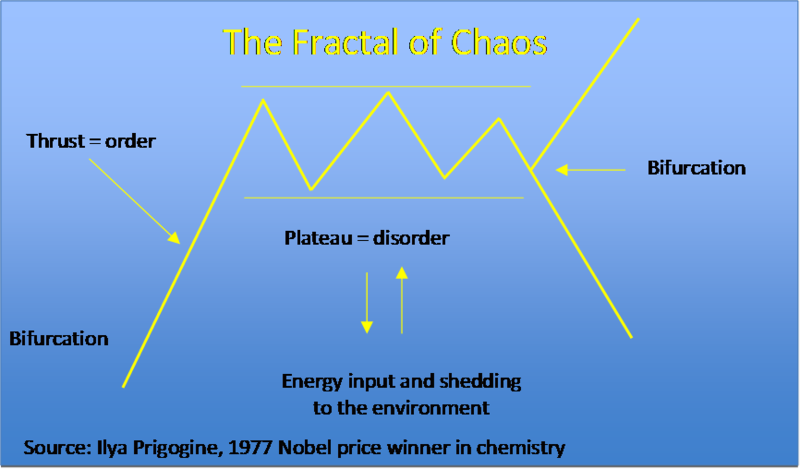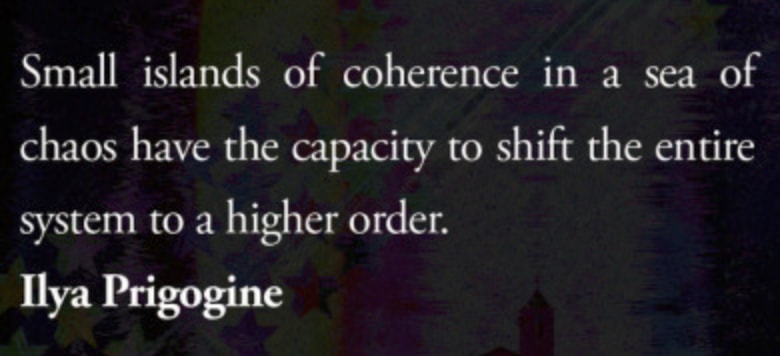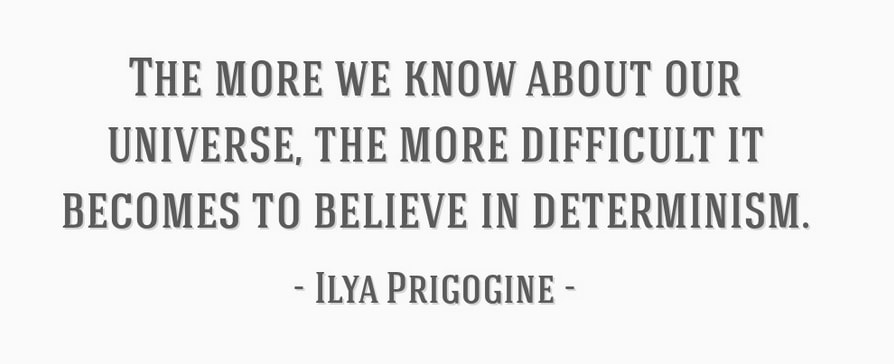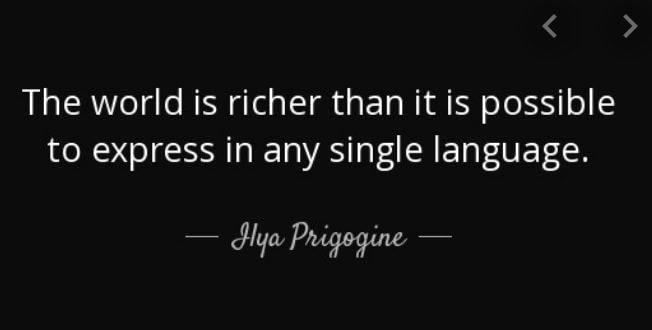Notes on the Book The End of Certainty - by Ilya Prigogine (1997)




Interesing summery of the book by Mona M.Abd El-Rahman:
Prigogine’s view on cosmology (the more widely accepted Big Band Theory and The Steady State Theory) agrees with that of the Indian cosmologist Jayant Vishnu Narlikar, who wrote “Astrophysicists of today who hold the view that the ‘ultimate cosmological problem’ has been more or less solved may well be in for a few surprises before this century is out”.
“Many scientists have been willing to explain this singularity (the big bang) in terms of the “hand of God” or the triumph of the biblical story or creation.”
“In accepting that the future is not determined, we come to the end of certainty” says Prigogine. He does not believe, however, that this is an admission of defeat for the human mind. He asserts that the opposite is true.
He views the universe as a giant thermodynamical system far from equilibrium, where we find fluctuations, instabilities, and evolutionary patterns at all levels.
Some great quotes from the end of the book: For Einstein, science was a means of avoiding the turmoil of everyday existence. He compared scientific activity to the “longing that irresistibly pulls the town-dweller away from his noisy, cramped quarters and toward the silent high mountains. Einstein’s view of the human condition was profoundly pessimistic.
Science began with the Promethean affirmation of the power or reason, but it seemed to end in alienation – a negation of everything that gives meaning to human life.
Einstein repeatedly stated that he had learned more from Fyodor Dostoyevsky than from any physicist. In a letter to Max Born in 1924, he wrote that if he were forced to abandon strict causality (classical physics and relativity), he “would rather be a cobbler, or even an employee in a gaming house, than a physicist”. In order to be of any value at all, physics has to satisfy his need to escape the tragedy of the human condition. “And yet and yet”, when Einstein was confronted by Godel with the extreme consequences of his quest, the denial of the very reality that physics endeavors to describe, Einstein recoiled. (Godel took Einstein’s Theory of Relativity and classical physics and showed that past and future are equivalent and that it is possible to travel back in time).
Prigogine has tried to follow a narrow path between two conceptions that both lead to alienation: a world ruled by deterministic laws, which leaves no place for novelty, and a world ruled by a dice-playing God, where everything is absurd, acausal, and incomprehensible.
Prigogine ends his book with the following words: “As we follow along the narrow path, we discover that a large part of the concrete world around us has until now “slipped through the meshes of the scientific net”, to use Whitehead’s expression. We face new horizons at this privileged moment in the history of science”.
From Wikipedia, on "The End of Certainty":
"In The End of Certainty, Prigogine contends that determinism is no longer a viable scientific belief: "The more we know about our universe, the more difficult it becomes to believe in determinism." This is a major departure from the approach of Newton, Einstein and Schrödinger, all of whom expressed their theories in terms of deterministic equations. According to Prigogine, determinism loses its explanatory power in the face of irreversibility and instability."
An interview with Ilya Prigogine by Yiannis Zisis
Ilya Prigogine – On Dualist Knowledge
Dissipative system (wikipedia)
"A thermodynamically open system which is operating out of, and often far from, thermodynamic equilibrium in an environment with which it exchanges energy and matter. A tornado may be thought of as a dissipative system."
#Science #Complexity #Generative #Regenerative #Religion #Philosophy #Book